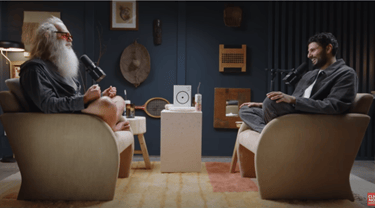- The Shift
- Posts
- Do Work and Purpose Go Together?
Do Work and Purpose Go Together?
Welcome to The Shift, a weekly newsletter where I provide thought-provoking ideas to help you think differently about your career and money.
Last Week + This Week = It’s All Connected
Last week I explained how the FTC is setting the stage for a small business boom – plus how Silicon Valley started. Read here if you missed it.
This week I explore finding purpose at work through Rick Rubin.
Finding Purpose
Is our work supposed to be our purpose?
I think it’s easy to assume we find our purpose in the work we do because:
We spend a lot of time there (one-third of our lives).
Our identities are tied to our jobs (60% of people with a college degree say their jobs give them a sense of identity1 ).
Purpose is part of our identity. Most of us want to find some meaning in the work that we do. That’s been the case since at least 20052 .
Though it certainly seems purpose at work gets more headlines in the post-pandemic world.
Is it possible we are over indexing on finding our purpose at work?
Brass Tacks First, Purpose Second
I bring this topic up because it’s a question that nags at me.
Plus, I came across an interview clip with Rick Rubin this week that compelled me to write about it…
If you don’t know who Rick Rubin is (I didn’t until about a year ago…), he is a music producer known for his work with a wide range of artists, from the Beastie Boys to Johnny Cash. He is the co-founder of Def-Jam Recordings.
I am no music buff, but I resonate with his philosophies discussed in his book “The Creative Act” and find his thinking interesting and thought-provoking. (It’s also an attractive coffee table book 😉).

Anyway, in a recent interview with Jay Shetty, he had this to say about finding purpose at work:
“Maybe your purpose in your life isn’t related to your job?
Maybe your job is your job, and the job is the thing that supports you.
And then the rest of your waking hours are devoted to your purpose.”
He is then asked about why so many of us try to make work and purpose the same thing. He believes that having dreams and goals are important, but he makes this point which really stuck with me:
“Don’t let following your dreams undermine your ability to support yourself.”
Rick gives an example of how chasing your purpose at the cost of your livelihood will create pressure that changes you for the worse.
It was refreshing to hear this sentiment from someone who believes in living your purpose.
My take:
That doesn’t mean you give up on purpose. It means you find other outlets to achieve your purpose. Take care of the brass tacks of why we work first: to make a living. It will make finding purpose easier.
The link to the full conversation is here. Start at 1:07:47 to hear this part of the conversation.

Creating Purpose
There are people that do find alignment between their purpose and making a living.
It isn’t impossible. It just might be rare.
If it does happen, it doesn’t necessarily happen your 20s. Sometimes I think purpose might be something you build. Maybe it’s something that is achieved over time? Potentially through the process of work?
For example, you might start a job that you’re not great at. But then you start to get good at it. Then you start to like it because you know how far you’ve come. Then you get more deeply engaged in the job, the industry, and/or the company you work at. I could see purpose flowing from that.
It might even flow from finding your tribe at work. The right people and support systems can bring out the best in you, and that can make what you do more meaningful.
Bottom Line
I don’t think there is one answer to finding the alignment of purpose and your work. And that’s OK.
The good news is that finding purpose in life is possible!
It just might be something you have to create – rather than find.
What do you think? Shoot me a message with any thoughts!
Love hearing from you guys.
Let’s make The Shift!
P.S. I’d be forever grateful if you’d share this with 1 other person who might enjoy it. 🙏
Lindsey

Sources:
Pew Research.
Harvard Business Review.